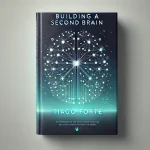Recently, I was thinking hard on the future of writing, and how AI will make an impact on writing. I genuinely was thoughtful and mad that writing won’t ever be like before, since AI will do the most of the work. I even became discouraged towards writing, which even led me to not giving proper effort into my writings, but just using AI to refine my non-perfect human expressions. I wasn’t enjoying to write anymore. Since writing meant to be a tool to express my work, I replaced myself with AI, to ease my life, I thought… But fortunately, I then realized.. This is not even the point. The point is about writing for the sake of writing.
To clarify, writing is a tool. In fact, perhaps the most important tool for the improvement of humanity. A tool that enables humans to document, to express, to communicate and surely many other use-cases. So, my tendency to use AI to automate and improve the way I expressed my work, was natural, I’d argue. I was solely focused on transferring my knowledge into words, the best way possible. But then I saw what I used to unsee in writing; the reason why I was into writing and why I felt good afterwards.
Because writing enables one to think. My initial goal was not to produce an article. It was to write, to think, to reflect my thoughts, to dive into my unconscious mind, usually making up a text of some sort, essay, article, journal. I was writing for the the sake of writing.
This aspect, I think, is mostly an under-appreciated one among the other more obvious contributions of writing. Especially this because, I want to point out this immensely critical aspect of writing, which AI never ever will be able to do the work for you.
“If you’re thinking without writing, you only think you’re thinking.” — Leslie Lamport
Yes. It sounds counter-intuitive, but it is true: we think while writing. In fact, it is a sort of thinking, that can only be done while writing says Paul Graham. A clear thinking. I can just agree with this statement, since it was my experience for my whole writing journey. I wasn’t able to call the reason, but I’ve always felt during, and after writing a clear mind, clear thinking.
Well this implies back as well, meaning, you also need a clear mind to write well. This is, of course, a challenging condition, which is why, there won’t be many clear thinkers, and good writers. So this is a skill one can and should improve, not just write well but also think clearly. I encourage everyone, who have ambitious goals to master this skill.
As I hear the statement “Writing is a skill, one has to master.” I’d immediately think of Shakespeare or Tolstoy, who clearly are masters in writing and literature. But our writing does not, and maybe even should not be like theirs. Poems, plots and novels are another whole world. If you do have interest for them, don’t hesitate, keep going.
But what I really want to represent is a sort of writing which is simple just like speaking language and pure and full of ideas. Complex and cool sounding formulations don’t really bring neither the writer nor the reader anywhere: the writer leaves an impression of being a pretentious fancy guy without much value of his text, and the reader is combating to understand the ideas presented.
But a pure and simple language on the other hand, enables the writer to present his ideas clearly but also think clearly about them, whilst the reader grasps the ideas quickly due to the simple but elegant presentation. After I read the essay Write Simply by Paul Graham, this made incredibly sense. I recommend you to read it as well. He said:
[…] the easier something is to read, the more deeply readers will engage with it. The less energy they expend on your prose, the more they’ll have left for your ideas.
So, I generally think, the best and most effective way of writing is journaling. Yeah, it’s a cliché everyone seems to be promoting. But one has to understand the why first. The whole point of journaling is not just simply documenting ones each day. Even though I started with this intention, I then discovered the true value of it. The true value of journaling, or in general writing your thoughts down as the first thing in the morning is the relieve and reflection of your thoughts, which leads you to a clear mind to start your focused work.
All in all, if you were to take one idea of this essay: write your thoughts down on a sheet of paper every morning before you start your work, to relieve and reflect your thoughts, to have a clear mind and thinking. But, besides this, improve your skill of writing, simply for the sake of writing to eventually improve your thinking. Write humble articles, essays on topics you want to think more and clearly about, that interest you deeply, and possibly others. While doing so keep your language simple but elegant, use ordinary words and simple phrases.







